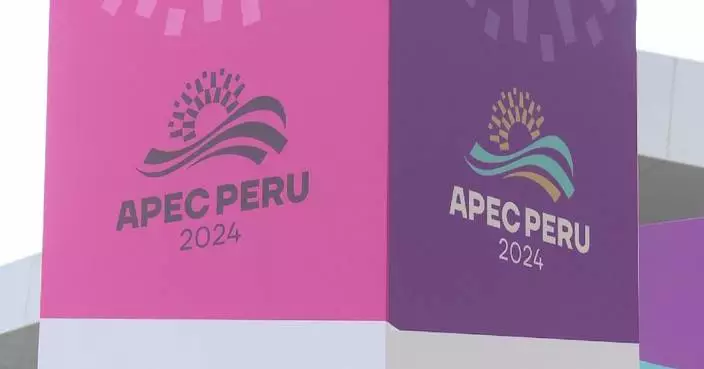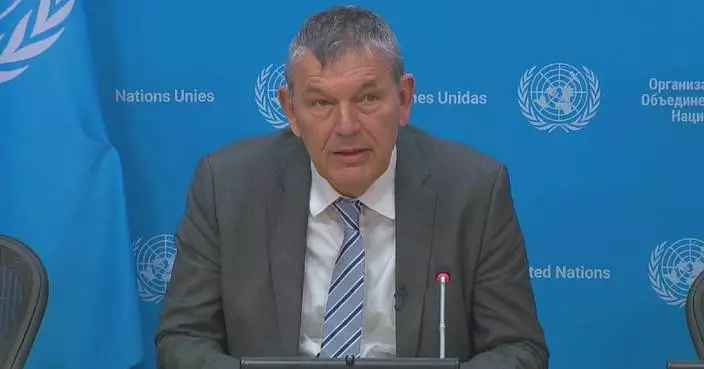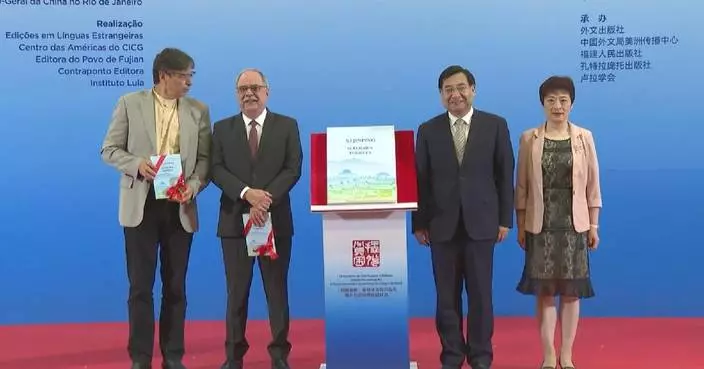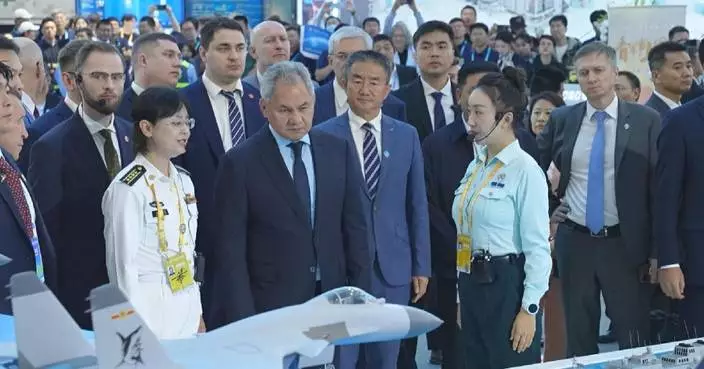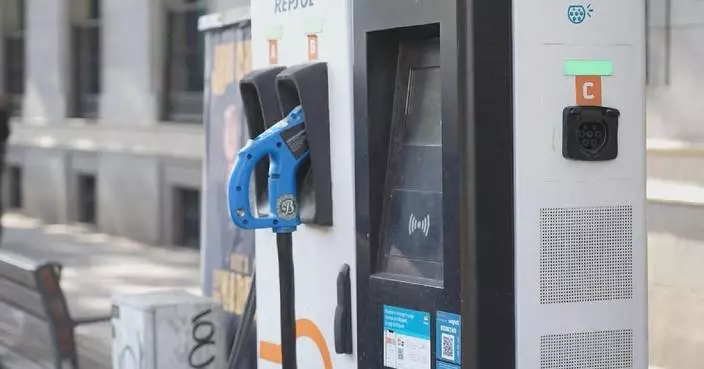Hundreds of farmers gathered in Brussels on Wednesday to protest against a major trade deal between the EU and Mercosur countries, worrying that the influx of cheap products would lead to unfair competition and impact local farmers' livelihoods. The EU-Mercosur Free Trade Agreement, aiming at removing tariffs on most products traded between the EU and Mercosur countries, including Argentina, Brazil, Paraguay and Uruguay, is likely to be signed at the upcoming G20 Summit, reports said.
While the European Commission claimed that the agreement would benefit both regions and bring more job opportunities, EU farmers fear that cheaper products from Mercosur countries, which are not subject to EU requirements, would flood the European market and create unfair competition.
The European Commission promised to set up a fund to support affected farmers, but many protesters remain unconvinced.
"Signing this type of treaty will even make the situation worse. They need to be paid a decent price for what they're producing. They don't want other types of compensation or others. They want to be paid for what they are doing and have a decent living," said Damien Chavel, the organizer of the demonstration.
Negotiations on the EU-Mercosur Free Trade Agreement have been ongoing since 1999, with disagreements persisting. Prime Minister of France Michel Barnier claimed that France will not accept current clauses, while Spain and Germany are more positive towards the agreement, with German Chancellor Olaf Scholz recently calling for sealing the deal faster.
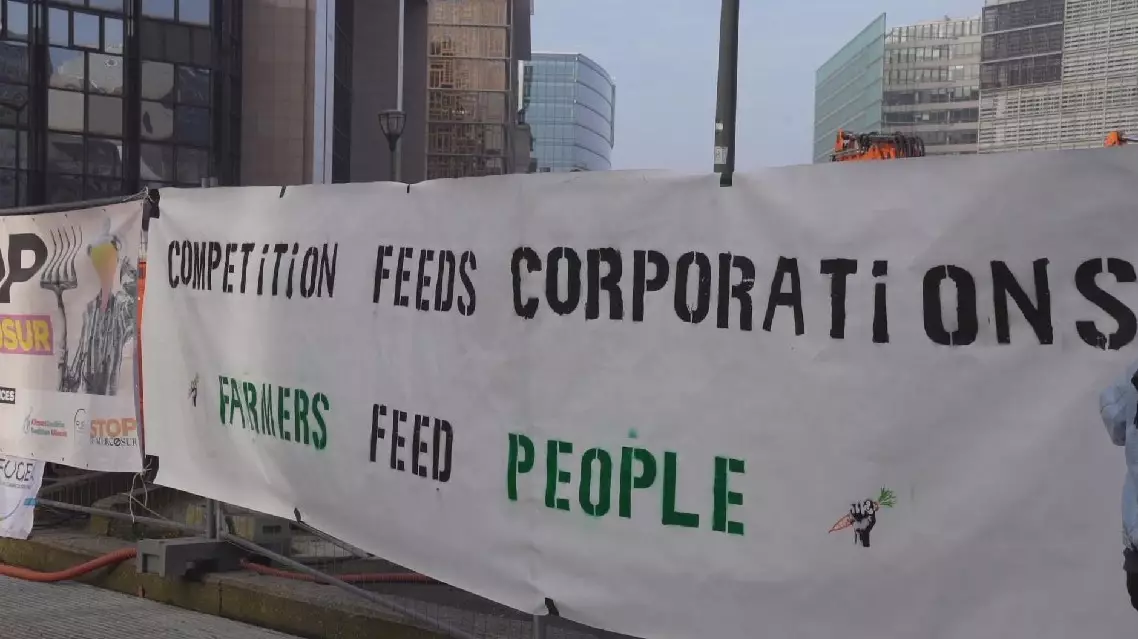
Farmers gather in Brussels to protest EU-Mercosur Free Trade Agreement
The additional tariffs the European Union imposed on the electric vehicles (EVs) imported from China are harmful to export-dependent economies like China and Germany which need free markets, said a German business chamber leader.
Maximilian Butek, executive director of the German Chamber of Commerce in China - East China, made the statement in an interview with China Global Television Network (CGTN) on the sidelines of the AHK Greater China Xceleration Days 2024, which is taking place in Beijing from Nov 13 to 15.
"The tariffs are against carmakers who produce in China and deliver to Germany. And this also hits companies like Tesla or BMW. So, we positioned ourselves on behalf of our companies against tariffs because our economy is quite similar to the Chinese economy. We are highly export-dependent. So, we need free markets, and having implemented tariffs will not promote the idea of free markets. We need an open discussion because if the economy is continuing to slow down, we will not have a good winner out of that," he said.
Last month the European Commission announced the imposition of anti-subsidy tariffs on Chinese EVs. Starting Oct. 31, these tariffs will remain in place for five years with varying rates: 17 percent for BYD, 18.8 percent for Geely, and 35.3 percent for SAIC, among China's leading automakers. Additional firms that cooperated in the investigation will be subject to a 20.7-percent duty, while non-cooperative companies will incur the maximum 35.3-percent rate.
Butek also noted that German companies are committed to exploring the overseas market like China and the United States by creating jobs, bringing technologies and boosting innovation, thus urging the two economies not to decouple in case of taking a toll on consumers of both sides.
"Chinese companies have future advantages. German companies have future advantages. We German companies, we really love to be in China, to be very committed to our employees here. And we have more than one million employees in China to continue bringing technology, knowledge, innovation into China. And we also like to do that in the States. So, I believe that the tensions between U.S. and China, those two powers have to resolve that. And we, in the ideal world, try to work in both systems. And we just can urge both sides: don't decouple, because if you decouple, it's the consumers in China and in the U.S. will pay for it," he said.
As the flagship business event organized by AHK Greater China, the AHK Xceleration Days attract thousands of business leaders, executives, and representatives of international organizations, aiming to promote bilateral economic and trade exchanges and cooperation between China and Germany and to accelerate their business development in China.
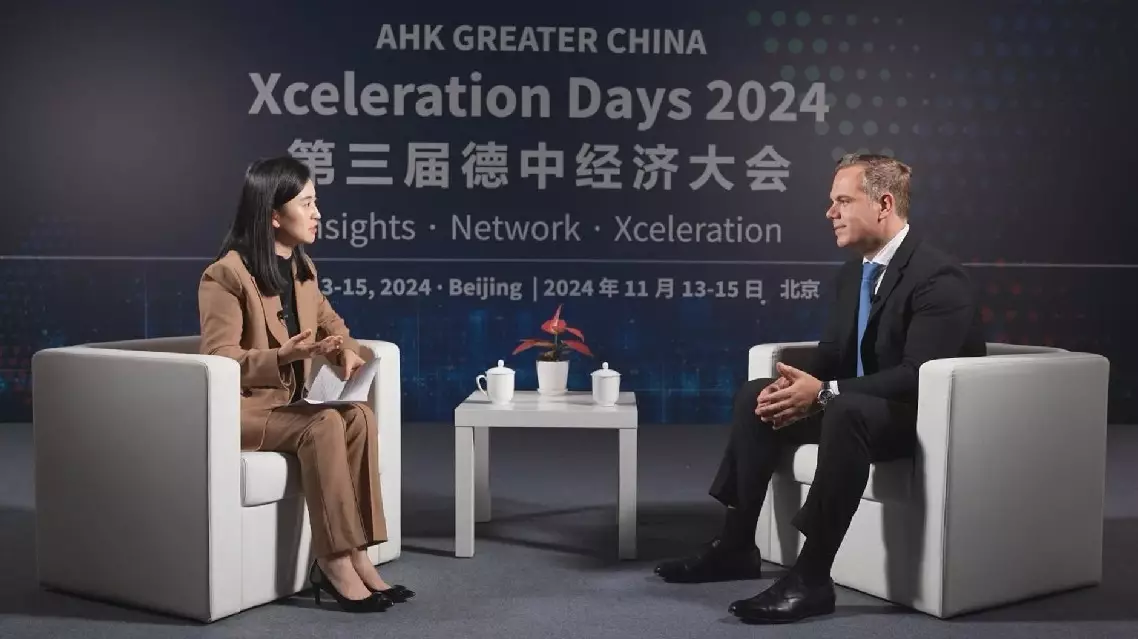
EU tariffs on Chinese EVs harm export-dependent economies: business chamber leader




